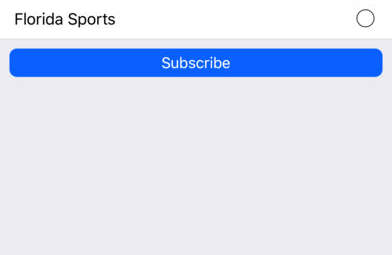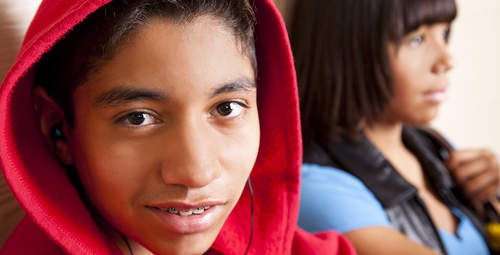Welcome Guest!
Teachers are welcome to read and post on Teachers.Net.
Login to access to these free features:
| • Relaxed spam filters • Post pics, links & comments • Get notified of responses |
• Join teacher groups • Apply to teacher jobs • Post a resume |
| LOGIN |
Welcome Guest!
You must login to comment on posts.
Login to access to these free features:
| • Relaxed spam filters • Post links & upload pics • Get notified of responses |
• Join teacher groups • Apply to teacher jobs • Post a resume |
| LOGIN |
Welcome Guest!
Your account must login to post.
Login to access to these free features:
| • Relaxed spam filters • Post, comment, & upload pics • Get notified of responses |
• Join teacher groups • Apply to teacher jobs • Post a resume |
| LOGIN |
Sep 26, 2017
view previous comments
WendyF
I totally agree with you, Anne. In addition to setting clear expectations for my students on day one, I do two things. I send home, in writing, a packet that contains all of my expectations with the subsequent consequences if they are not followed for parents to sign. Then I make a point of calling every parent by the end of the week. This way I st...See More
WendyF
I totally agree with you, Anne. In addition to setting clear expectations for my students on day one, I do two things. I send home, in writing, a packet that contains all of my expectations with the subsequent consequences if they are not followed for parents to sign. Then I make a point of calling every parent by the end of the week. This way I st...See More
Dec 28, 2017
Linda
First of all, according to kindergarten teacher Chad Boender, learn what the different learning styles are in your class. In order to meet the learning goals and/or objectives of each lesson, you must constantly be aware of how you're delivering information. He has more on this topic in his "Hey Teach" article: "Accommodating Different Learning Sty...See More
Steven G
Thanks, Linda. I'll check out that article.
Sep 26, 2017
First, I make sure students understand my expectations and that I am firm with them. My rules: 1. Respect me, the classroom, and each ot...See More
view previous comments
Alexandra Sletten
Kaylee, we have very much the same philosophies about classroom management. I always tell my students that every art class is a fresh start. Letting them know that you care about them is so important! I try to follow school code of conduct rules as much as I can, and always ask the kids about if their poor choice was taking away from their learning...See More
Linda
Suzanne Capek Tingley is a veteran teacher who says there are classroom management techniques, such as striking bargains with students, that may seem counterintuitive but actually work. Google her article: "5 Classroom Management Tips That Seem Counterintuitive." I agree with her--creative negotiation always worked well for me!
Sep 27, 2017
https://www.weareteachers.com/dont-smile-until-christmas/
CrystalB
I have not been in the teaching profession that long, but some of my very favorite teachers, who I engaged with the most and learned the most from, had an easy-going way and definitely smiled - many of them smiled a lot. I don't think that being serious about teaching and learning is opposed to being friendly, kinds, and caring. Not sure where that...See More
Sep 26, 2017
view previous comments
Heather S.
Ashley, PBIS is the behavior system we use at my school. For the past few years we have been trying to focus on the positive behaviors as well. Teachers felt that so much of our energy was going towards negative behaviors and those students always doing their jobs were not being recognized. As a PBIS team we decided that we would start implementing...See More
CrystalB
Hello Ashley, I am a believer in positive reinforcement. I have seen most students respond very well to this approach. Pointing out when someone is doing a good job can be a big boost for students. It must be done sincerely - kids can see right through someone who isn't being sincere. I think this comes pretty easily for most of us, because we woul...See More
Sep 30, 2017
As part of creating a positive atmosphere (and with a co...See More
view previous comments
Heather S.
I like the idea of monitoring student learning through fluency and comprehension assessments to keep them accountable. Having students self-monitor is a great skill for students to lean and practice also. As far as students "slacking off" or not staying on task when outside, maybe you could have book chats with them. This way you could keep student...See More
CrystalB
Hi Heather - thank you for your idea. If my students are reading two different text, which is about how much differentiation I anticipate, I think that would be do-able. Have a book/text chat. I can really be doing some conferencing with them, and asking questions where they are at. I know at least one of the students is ready to really be thinking...See More
Sep 30, 2017
view previous comments
Heather S.
Thank you Crystal, I really like the idea of using interests of theirs and providing activities or books. I do believe that some students are intrinsically motivated and that is a wonderful character trait, but some students are motivated by rewards. It is difficult working in a school that doesn't support individual extrinsic motivators. Thank you...See More
mollyh
How do you discipline in the classroom? Maybe those kids have figured out, "negative attention is better than no attention?"
Sep 27, 2017
view previous comments
Kaylee H
Samantha, I feel I would struggle so much in this type of situation. I agree that students should not learn "the right thing to do" because they should, but a little reward can go such a long way. I can especially understand how difficult it must have been for you when you were in multiple schools with different standards. Yikes! For me, I use rewa...See More
Samantha M
Molly, yes I do this because of my position. I have worked at this school for 7 years and it is definitely engrained in my teaching style. We recognize positive behavior with letters home, post cards home, or "Ask my why I got this sticker" stickers to encourage conversation at home but it is not to be used in the terms of "if you follow directions...See More
next page »
Teacher Chatboards




